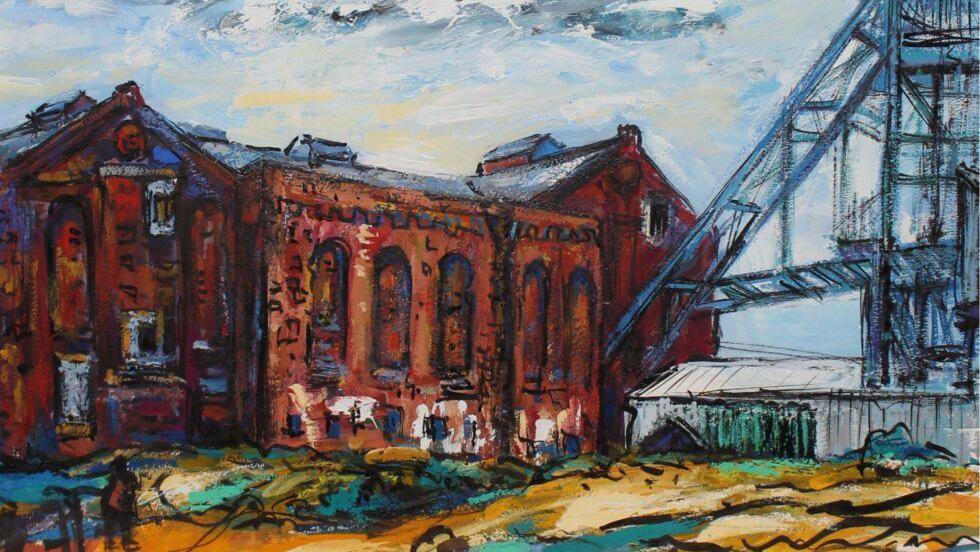Hidden industrial heritage uncovers city's history
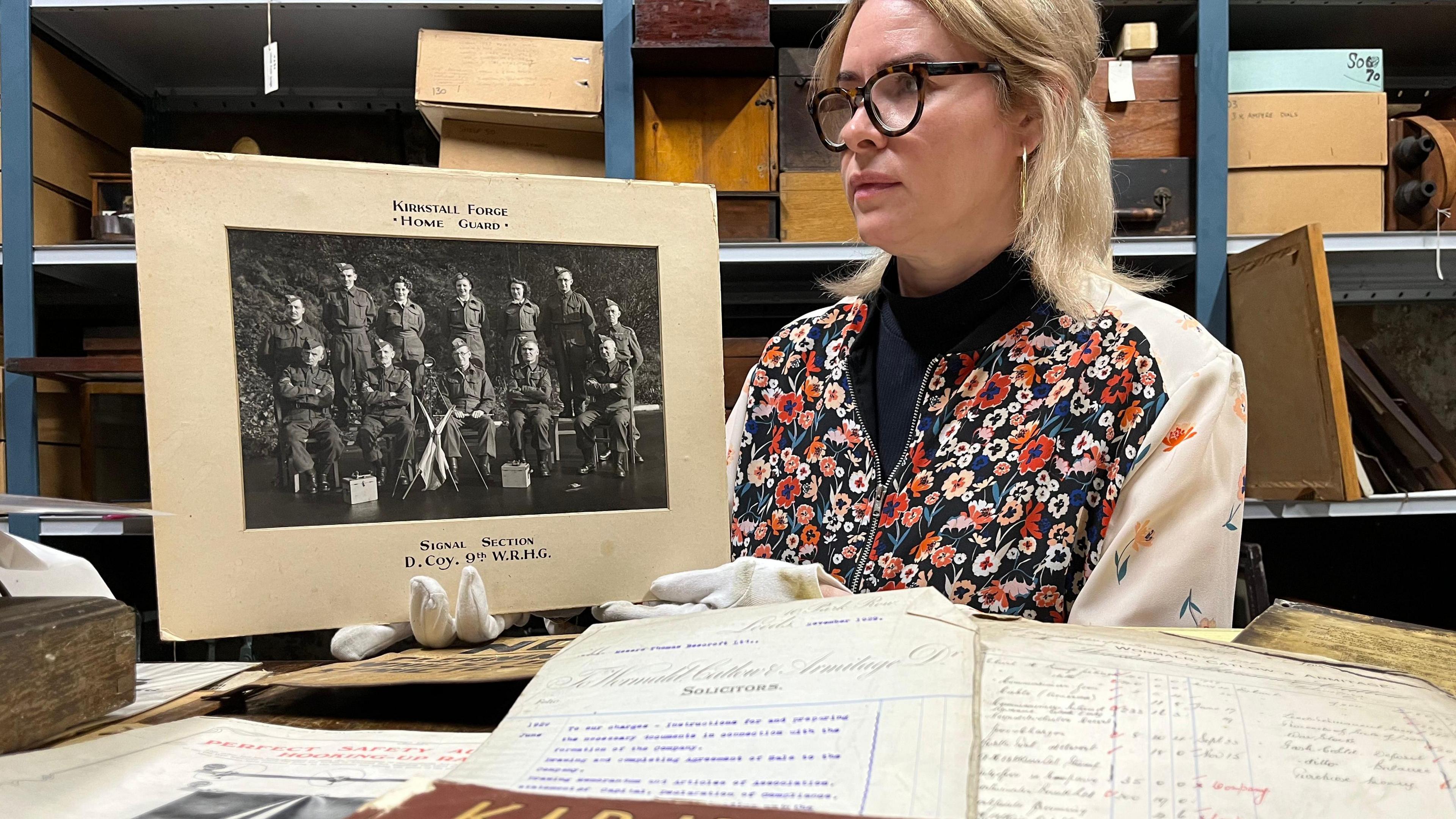
Assistant curator Amy Jenkinson assisted with the cataloguing project
- Published
An 80-year-old photo of a Home Guard unit, metal sheets showing kittens driving cranes and vintage Christmas cards are among the items that have been rediscovered at a Leeds museum.
The objects were found at Leeds Industrial Museum as part of a cataloguing project of its archives.
Leeds Museums and Galleries' curator of industrial history John McGoldrick said it had been "incredible" to rediscover the stories behind the objects.
He said: "The huge variety of objects in our store shows just how integral industry and production have been to the history of Leeds.
"Leeds has been home to some globally important factories and production centres, which have changed the face of fields including textiles and railways the world over.
"But it's also a city that's been built on the hard work of family businesses and individuals who carved a niche and left a mark on history in their own way."
On the shelves are hundreds of objects collected, donated and stored over several generations.
They include a collection of documents, signs and photographs from Kirkstall Forge, one of the oldest industrial sites in the country.
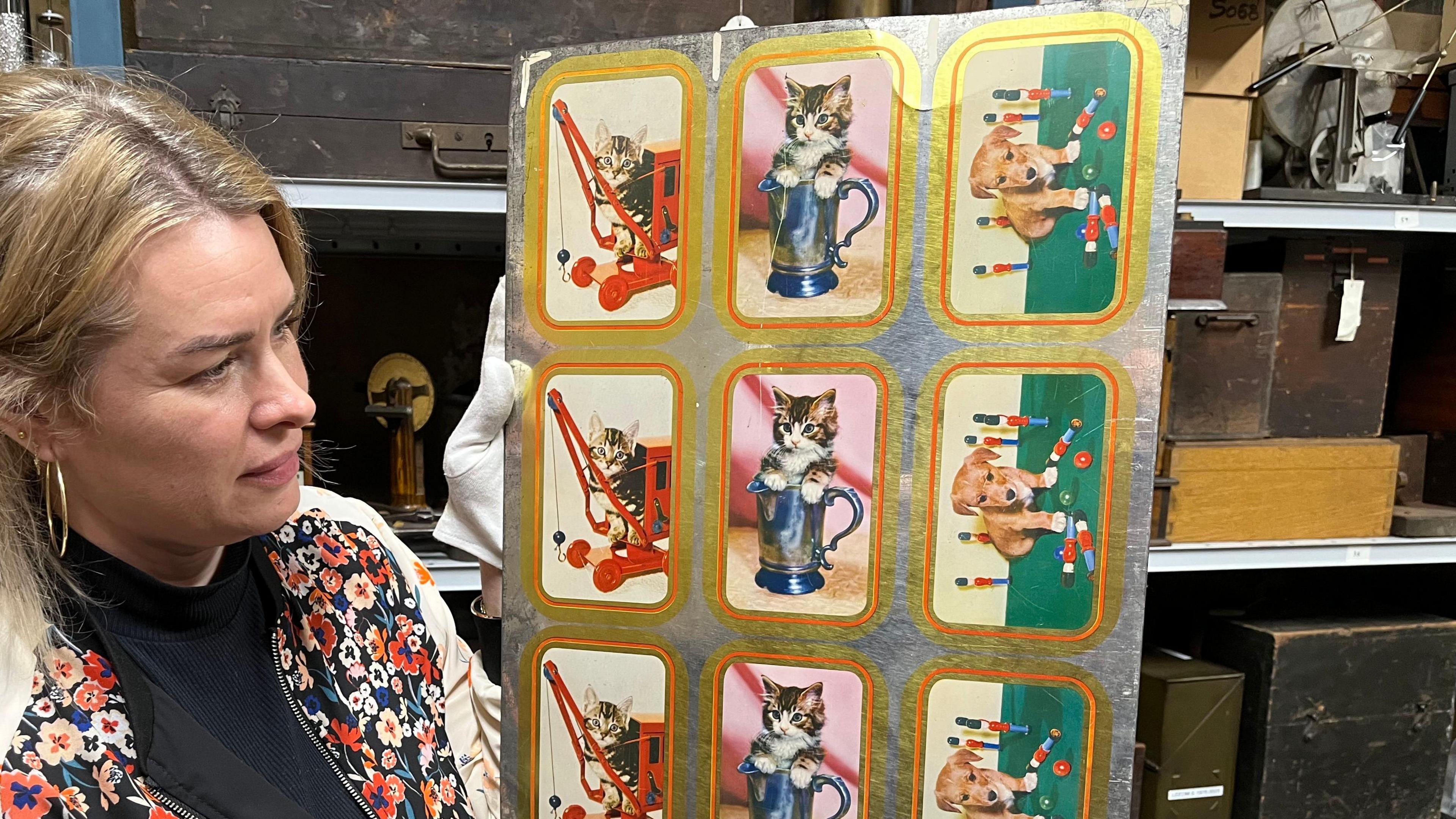
The metal sheets were used to make toffee boxes
A photograph of Kirkstall Forge Home Guard shows the World War Two volunteer unit, which defended and patrolled the factory - a hugely important wartime production site that manufactured parts for military vehicles.
The inventory project also uncovered a selection of corporate Christmas cards and calendars printed in the 1950s.
The cards would once have been sold to business owners in Leeds to send to their clients and employees.
The project also unveiled a series of steel signs advertising vintage businesses, made by Charles Lightowler, a family firm established in Hunslet in 1891.
Lightowler became known for printing tinned food, sweet and tobacco containers, a selection of which held in the museum show tiny kittens driving toy cranes and sitting in cups, and a woman cuddling up to a golden labrador.
Dating back to the 1600s, the site of Leeds Industrial Museum was once one of the world's largest woollen mills.
Get in touch
Tell us which stories we should cover in Yorkshire
Listen to highlights from West Yorkshire on BBC Sounds, catch up with the latest episode of Look North.
Related stories
- Published1 July
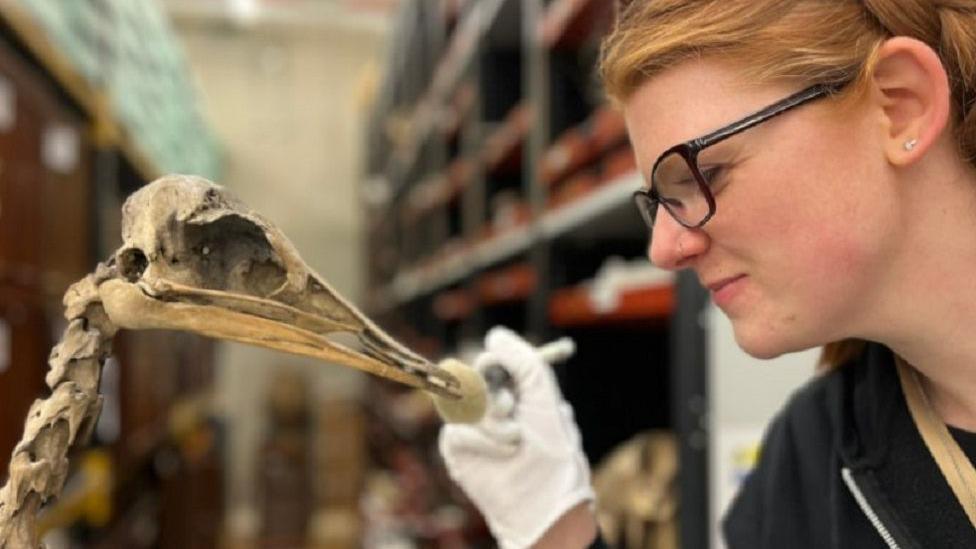
- Published26 February
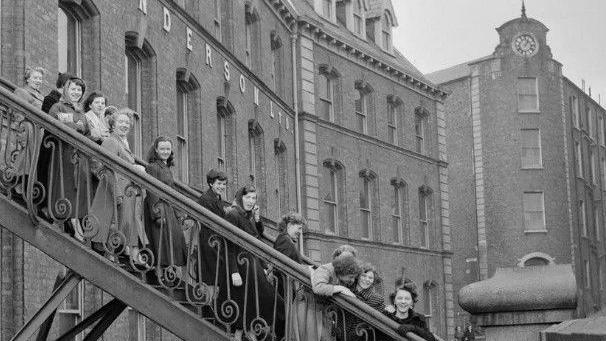
- Published18 January
